News
Mordor reports on sodium reduction
7 Apr 2016Mordor Intelligence has announced the publication of its research report on the sodium reduction ingredients market: "Global Sodium Reduction Ingredients Market - Growth, Trends and Forecast (2016-2021)".

Mordor Intelligence has announced the publication of its research report on the sodium reduction ingredients market: "Global Sodium Reduction Ingredients Market - Growth, Trends and Forecast (2016-2021)".
The market for sodium reduction ingredients was estimated at $625.7 million in 2015 and is projected to reach $1,294.3 million by 2021, at a compound annual growth rate (CAGR) of 11.2%.The sodium reduction ingredients (SRIs) market is one of the fastest-growing ingredient segments in the food and beverage industry, Mordor says. The market depends heavily on the technical capabilities of food ingredient manufacturers to develop new requirement-based formulations. According to industry estimations, current global salt intake is over two times recommended levels. A recent study by the Harvard School of Public health as well as the University of Cambridge proved that the sodium intake in 181 nations has exceeded the recommended levels of two grams per day.Over 70.0% of sodium consumption is derived from the processed, pre-packaged, or restaurant foods, Mordor notes. The market for processed food is quite large in the current scenario and so is the market for developing the technology and strategy for sodium reduction. The report says that companies such as Cargill, Novozymes, Danisco, Kerry Group, Givaudan, DSM, Corbion Purac and others, are concentrating on health issues that result from the high intake of NaCl.In the last few years, 75 countries have set up national salt reduction strategies, with a multifaceted approach, such as the taxation on high-salt foods, establishment of sodium content targets for food items, consumer education, front-of-pack labeling schemes, and interventions in public institutions. Regulatory actions pertaining to salt reduction, such as mandatory targets, content labeling, food procurement policies, and taxation, have been implemented in over 30 countries, and 12 countries have reported reduction in population salt intake.According to Mordor, drivers affecting the studied market include:+ Health and wellness campaigns that are spreading awareness among consumers+ Growing demand from the food processing industry+ Identification of new flavour enhancing ingredientsRestraints affecting the studied market include:+ High cost of reformulation+ Low adoption rateOpportunities in the studied market:+ Stringent regulatory frameworks+ Innovation in product applications+ Growing opportunities from the untapped developing marketsThe report on the sodium reduction ingredients market is segmented on the basis of product type into: amino acids, mineral salts, yeast extracts, and others.Related news

BelliWelli secures funding for retail and team expansion
2 Jan 2025
US fibre brand BelliWelli has confirmed a further $10 million series B investment from Invus. The investment will help the company further expand its presence in the US.
Read more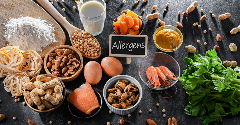
EU calls to harmonise allergen labelling increase
1 Jan 2025
Allergy awareness efforts focus on implementing a European reference laboratory and collaboration to standardise labels and support allergen identification.
Read more
Japanese study points to risk of excessive nutritional fortification
31 Dec 2024
Fortified foods and supplements are mainly beneficial but there is a small risk of over-supplementation – particularly for vitamin B6, a Japanese study has concluded.
Read more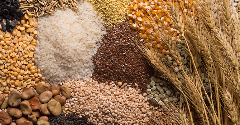
Is it time for a global definition of whole grain?
30 Dec 2024
Amid a lack of harmonisation, the European Food Information Council (EUFIC) is calling for a global definition of the term whole grain to end consumer confusion.
Read more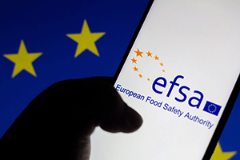
EFSA publishes new food additive research on non-nutritive sweetener saccharine
27 Dec 2024
The European Food Safety Authority (EFSA) has released new recommendations on saccharin and its sodium, potassium and calcium salts (E 954) as food additives.
Read more
FDA delivers workshop on nutrition regulation and science
19 Dec 2024
The FDA hosted a nutrition regulatory science workshop exploring ultra-processed foods and emerging technologies, aiming to spotlight the relationship between nutrition, science, and evidence-based policies.
Read more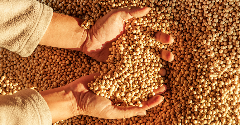
How US soy exports shape Southeast Asian food
19 Dec 2024
As Southeast Asia and the US mark 20 years of trade, trends in soy, especially plant-based preferences, signal increasing demand for high-quality protein sources.
Read more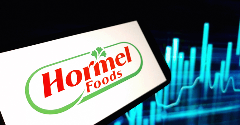
Hormel Foods sells its Health Labs brands to Lyons Magnus
17 Dec 2024
Hormel Foods has confirmed the sale of its Hormel Health Labs division to Lyons Magnus, creating Lyons Health Labs. The strategic move aims to better position Lyons Magnus as a leading player in the growing US market for nutritional and health products...
Read more
Nestlé releases products for pregnancy and fertility
13 Dec 2024
Building on in-house research, existing scientific evidence, and consumer demands, the global food company has developed products designed for mothers and babies.
Read more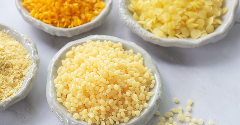
Consumer awareness and transparency key factors in shift to natural-based emulsifiers
11 Dec 2024
The demand for natural-based emulsifiers in the food industry is surging as health concerns over the use of synthetic emulsifiers have consumers looking for alternatives.
Read more